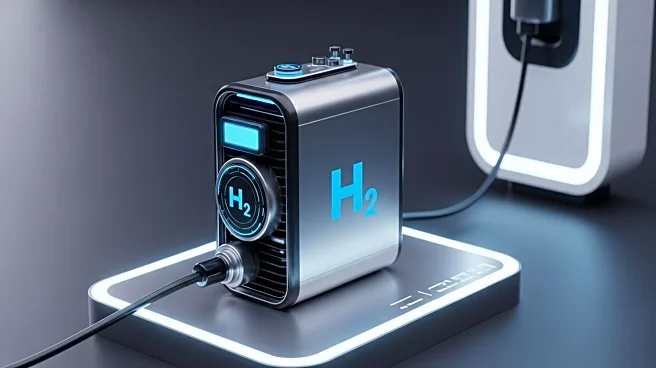What's Happening?
Researchers from Tokyo's Institute of Science have developed a new hydrogen battery that operates at significantly lower temperatures than previous models, potentially revolutionizing energy storage for electric vehicles. This battery uses magnesium hydride as the anode and hydrogen gas as the cathode, with a solid-state electrolyte featuring a crystal structure. The innovation allows the battery to function at 194 degrees F, compared to the 572-752 F required for current hydrogen storage methods. The battery design enables hydrogen gas to be stored and released in a solid-state cell on demand, offering a capacity of 2,030mAh per gram, which is substantially higher than traditional lithium-ion batteries.
Why It's Important?
The development of this hydrogen battery could significantly impact the electric vehicle industry by providing a more efficient and sustainable energy storage solution. Hydrogen batteries offer a lower carbon footprint compared to fossil fuels and current hydrogen-based power systems, potentially accelerating the transition to green energy. This breakthrough could lead to the adoption of hydrogen batteries in electric vehicles, addressing issues such as weight, degradation, and efficiency decline associated with lithium-ion batteries. The ability to store hydrogen without high-pressure systems or extreme cooling could further enhance hydrogen's role as a green power source.
What's Next?
If scaled up and put into production, this battery technology could propel hydrogen as a fuel of the future, offering a viable alternative to lithium-ion batteries in electric vehicles. The research team aims to continue developing efficient hydrogen storage systems suitable for use as energy carriers, potentially leading to widespread adoption in the automotive industry.
Beyond the Headlines
The introduction of hydrogen batteries could trigger long-term shifts in energy storage technology, promoting further research into sustainable and efficient power sources. This development may also influence regulatory policies and industry standards, encouraging investment in hydrogen infrastructure and technology.









